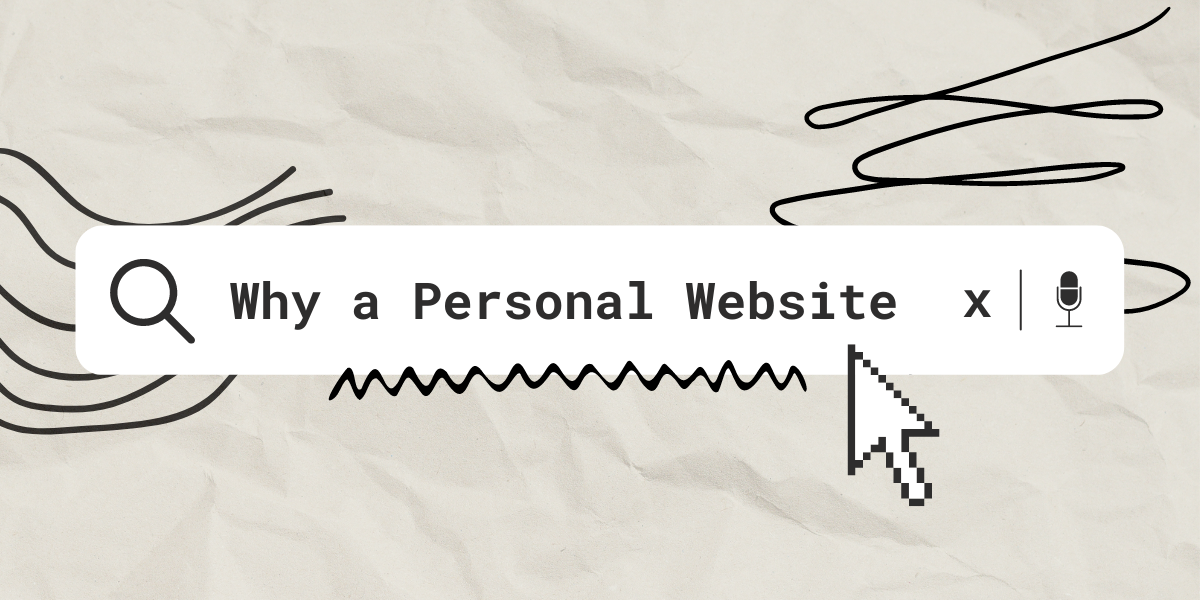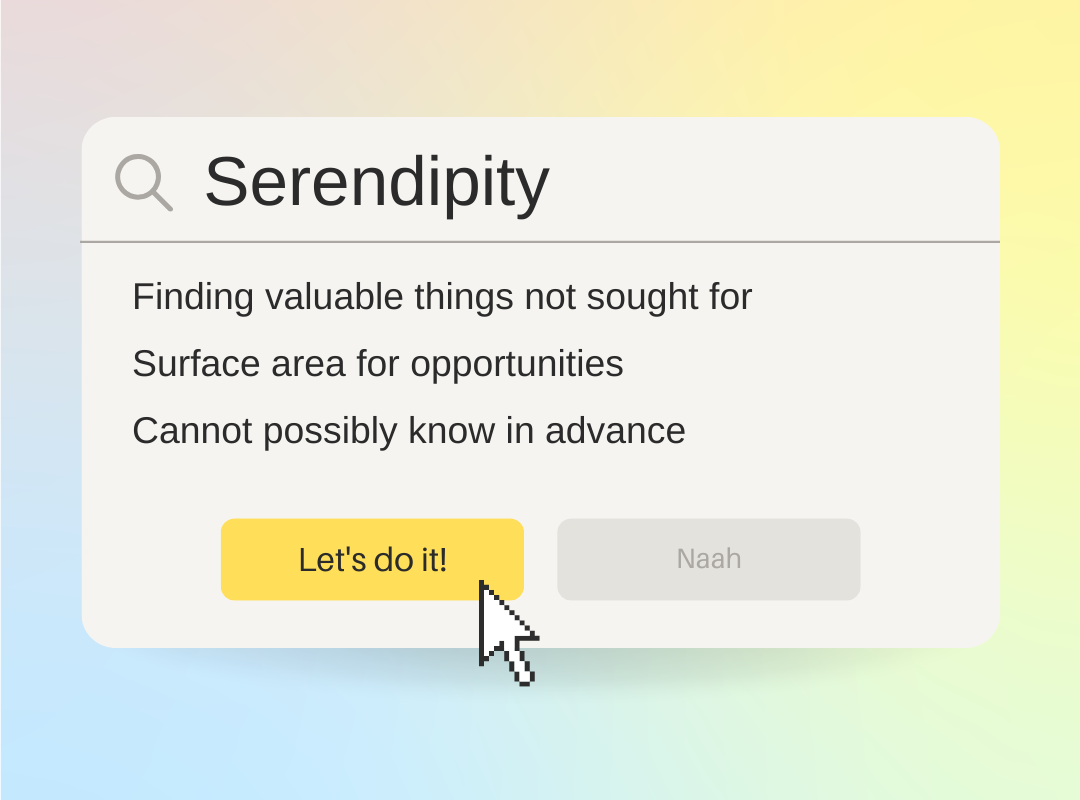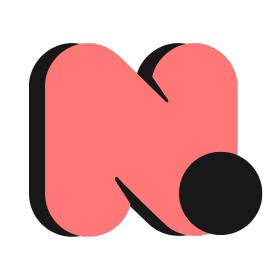Why You Need a Personal Website: 9 Strong Reasons
Explore 9 reasons why a personal website can transform your professional journey. From building your brand to expanding your network, discover how this digital asset can unlock new opportunities and reshape your online presence.

Having your personal website is a game-changer for professional individuals. Why? Because it is one of the highest leverage actions you can take today to advance your career, make new connections and gain opportunities.
Surprisingly, many still haven't taken this step - some because it is less common in their field of work and some because of fear of complexity. This needs to change! Whether you're a starter or a pro, an entrepreneur, an employee or an artist, we've got 9 compelling reasons to convince you that it's high time to kickstart your personal website. Let's dive in!
📝 Summary
- Building Your Online Presence and Personal Brand
- Expanding Your Network
- Showcasing Your Personal Portfolio
- Establishing Credibility, Trust and Authority
- Job Search and Career Advancement
- Independence from Social Media Platforms
- Enhancing Online Visibility and SEO
- Learning and Personal Growth
- Overcoming Imposter Syndrome

1. Building Your Online Presence and Personal Brand
Branding Yourself and Developing a Unique Identity
A personal website let's you build your online presence and personal brand. You can showcase your personality, values, and passions, providing visitors with a deeper understanding of who you are. A personal website enables you to craft a distinct personal identity, setting you apart from others in your field.
Controlling Your Narrative
With a personal website, you control the content and information presented about yourself. This ensures that the narrative remains accurate and aligns with your professional goals. This is especially important if you are pursuing multiple projects at the same time or have significantly changed your trajectory in the course of your career and work.
2. Expanding Your Network
Opening New Opportunities and Career Paths
A personal website opens up future opportunities that you cannot even foresee today. It increases your surface area for random positive encounters, contacts and chance. This is called serendipity.

Nassim Taleb famously put this idea forward in his Black Swan book, calling us to increase our exposure to asymmetric upside. Ali Abdaal recommends writing online for serendipity.
It might lead you from gigs to even new career paths you hadn't considered before.
Connecting with Like-Minded Individuals and Professional Networking Opportunities
Having a personal website helps you connect with people who share similar interests and goals. It opens doors to valuable professional networking opportunities. Especially by posting regular updates, sharing your work and thoughts and linking to your personal website from your social media posts, you will attract people that share the same ideas as you, work in a similar industry like you and work on the same problems.
Through your website, you can provide a platform for potential collaborators, partners, or employers to reach out to you directly.
3. Showcasing Your Personal Portfolio
A personal website acts as a digital portfolio, where you can exhibit your work, whether it's writing, photography, design, or any other creative endeavor.
It shows your skills, achievements, and past projects. A well-curated portfolio and can attract potential clients or employers who are actively seeking someone with your unique talents and skills.

This is why for many individual professional roles, it is very common to showcase a portfolio online, such as:
- Marketing Professionals: Marketers, content creators, social media managers, SEO specialists.
- Educators: Teachers, professors, online course creators.
- IT and Tech Specialists: Developers, programmers, data analysts.
- Freelancers: Writers, designers, photographers, videographers.
- Fitness and Wellness Experts: Personal trainers, nutritionists, health coaches.
- Event Organizers: Event planners, wedding planners, conference organizers.
- Real Estate Professionals: Realtors, property managers, interior designers.
- Creatives: Musicians, dancers, actors, filmmakers.
- Healthcare Professionals: Doctors, therapists, nutritionists.
A personal portfolio showcases your work.
But for other professionals that work more under the brand of their company, having a personal website and portfolio is uncommon. But guess what? This is where you can gain a massive advantage because very few others are doing it. Examples:
- Business professionals: Strategists, operators, business development managers, sales people, account managers
- Consultants: Management consultants, financial consultants, HR consultants.
- Finance and Data Specialists: Financial managers, accountants, data analysts
4. Establishing Credibility, Trust and Authority
Blogging and Content Creation
A personal website with a blog allows you to express your thoughts, opinions, and ideas on various subjects that matter to you.
Over time, you'll attract a dedicated audience interested in your content, leading to meaningful interactions and discussions.
Sharing Expertise and Knowledge, Becoming a Thought Leader
When you publish articles or blog posts related to your field of expertise, it establishes you as a knowledgeable authority in that domain. Consistently sharing valuable insights and original ideas can even elevate your status as a thought leader, increasing your influence within your industry.

Building Trust and Loyalty
A well-crafted personal brand fosters trust and loyalty among your audience, leading to long-term relationships. Who would you trust more, the word of some anonymous person or entity; or someone who puts themselves forward, with a name and a face behind their ideas, products or services? This is the power of trust. The longer you are out there, the more trust and loyalty you build up.
5. Job Search and Career Advancement
Standing Out in Job Applications
A personal website immediately makes you stand out from other job applicants puts you in the top 20% of all applicants. If you are not working in roles that require a personal portfolio, assume 80% of other applicants will not have a personal website.
Recruiters screen up to hundred written applications per day, spending on average 5 minutes of attention to each. If your application contains a personal website, they will check that, naturally spending more time with your profile. At a later stage of the hiring process, every hiring manager will search your name online. Why not own that impression with a personal website?
6. Independence from Social Media Platforms
Social media is vital, no doubt, but having your personal website offers a stronger, lasting online presence, free from platform uncertainties.
Build a newsletter mailing list to connect directly with your contacts and followers—no platform or algorithm standing in your way.

7. Enhancing Online Visibility and SEO
Picture this: your name on the front page of search results. A well-optimized personal website magnifies your online footprint, positioning you as a respected figure. Your authority isn't just felt by colleagues; it's recognized by search engines as well as hiring managers of booking agents, opening doors to greater visibility.
8. Learning and Personal Growth
Documenting Your Journey
Your personal website can serve as a record of your progress, documenting your growth and experiences over time. As New York Times bestseller author Austin Kleon states in his book ‘Show Your Work!’, there is nothing better than documenting your work in public. Whether it is freelance work, artistic work or consulting, professional work at your company, or even your hobby and household work at home. People love to see how you build things and will root for you.

Learning Valuable Digital Skills
Creating and maintaining your personal website helps you develop valuable technical and digital skills, such as how websites are built, design, storytelling and copywriting. Having the ability to create and manage your website empowers you to take control of your digital presence. It also gives you the tools to build other digital products or help you in your other professional work. A better understanding of design principles, basic storytelling, SEO, and boiling down information into meaningful, short bite-sized packages will improve your work in all other fields that you pursue.
Receiving Feedback and Advice
Interacting with your website visitors allows you to receive feedback and advice from different perspectives, aiding in personal and professional development.
9. Overcoming Imposter Syndrome
Your personal website is your mirror, reflecting your achievements and silencing self-doubt. As you curate your story, imposter syndrome fades away, leaving a confident and accomplished you in its wake.
Conclusion
In conclusion, having a personal website is a game-changer in today's digital landscape.
It offers a plethora of benefits, including building your online presence, expanding your network, showcasing your work, establishing credibility, and enabling career advancement.
By owning your digital real estate, you can control your narrative, showcase your skills, and enhance your online visibility. It's a powerful tool for personal growth, learning, and overcoming imposter syndrome.

So, don't wait any longer—create your personal website today and unlock the endless possibilities it offers!
We know: building a personal website can be daunting. Where to start? Fortunately, we’ve identified the easiest way to do it, hands-down: It’s a Notion.so website that sits on your personal domain, with named.so.
Check our article on why Notion is the easiest way to launch a website with named.so (coming soon).
Read our guide on how to set up your personal website in less than a minute (coming soon).
FAQs
Do I need coding skills to create a personal website?
How often should I update my personal website?
Regular updates are essential to keep your website fresh and engaging. Aim to update it at least once in a half year.
Can a personal website replace a traditional resume?
A personal website can complement your resume, but it's advisable to have both, as some employers may still prefer a traditional resume.
Should I use my real name for the domain name?
Using your real name as the domain name can enhance personal branding and make it easier for people to find you online.
Can a personal website be used for e-commerce purposes?
Yes, you can incorporate e-commerce features into your personal website to sell products or services directly to your audience.
About the author
Marian Walter is a business professional working in Fintech and Crypto. On the side, he builds technical tools and products and writes regularly about his work. He knows the importance and benefits of a personal website first-hand.
